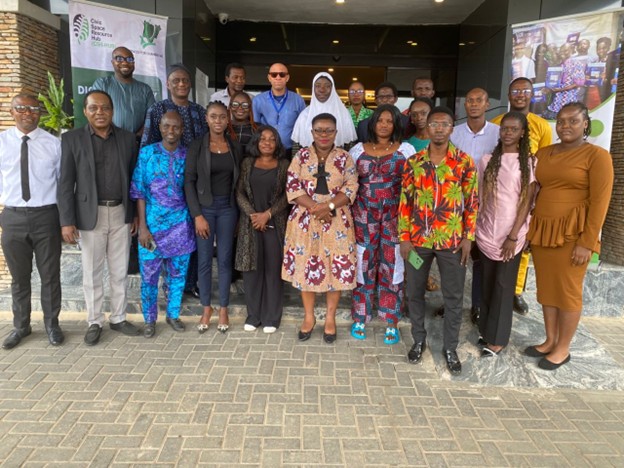By Victoria Ibezim-Ohaeri
Shock, outrage, agony and, of course, mixed feelings have continued to trail the murder of 24 year old beau, Cynthia Osukogu, a daughter of a retired major general of the Nigerian Army. Confessions extracted publicly from her murderers established how the deceased’s Facebook friends, drugged and then snuffed the life out of her, in a hotel room in Lagos. Her premature death put paid to her dreams, academic aspirations, entrepreneurship prowess and beauty. What a sad loss!
The involvement of “Facebook friends” in the murder saga has put the social media on trial, forcing many to adjust their privacy settings and recalibrating the character of the relationships they have with Facebook acquaintances. Cynthia’s father, retired Major General Frank Osokogu reportedly told newsmen in Jos, last Friday that “Cynthia’s death serves as a caution to youths who get to know friends on social media and venture to meet them.”As the debate regarding the value to be placed on Facebook friends rages along moral, ethical, social, professional, and more recently, safety lines, akey finding is that none of the arguments put forward in support of the divergent viewpoints powerfully conveys practical solutions designed to meet the challenges posed by the growing global dependence on digital information dissemination techniques and new media technologies. There is however, consensus on one point: personal security or safety is key!
Cynthia’s very unfortunate death offers many important lessons, especially to many young women who have frequent travels as a major feature of their job description. Young women professionals will continue to undertake private tours or foreign trips in connection with their entrepreneurial, career and professional obligations. The reliance placed on electronic interaction and online engagement is also not likely to wane, neither would the generous sprinkling of negative assumptions about Facebook relationships undermine its networking and interactive benefits. Skepticism is advisable. While some of the prevailing trends in virtual relationships are subject to challenge and revision, the Cynthia Osukogu tragedy has justifiably, reawakened security consciousness among online users, just as the need to support that consciousness with practical safety tips has become even more imperative.
Nigerians deal with risks every day – in the church, office, mosques, market, schools, public gatherings. The Boko Haram insurgency is a sad reminder of how unsafe, public spaces have suddenly become. What this means is that mounting insecurity across the country now thrusts a greater obligation on citizens to adopt more stringent measures that enhance their personal security, especially when they are away from home. Young women in particular, face greater risks of physical or sexual violence in unfamiliar climes and environments. The social media, with all of its real and imagined downsides, again, serves as a helpful security enhancement tool, if deployed positively.
It is appropriate for young people travelling alone, lodging in hotels, to meet and entertain visitors, friends and business acquaintances in the hotel lounges, bars and other open places. This is one security tip that would have saved Cynthia Osukogu. Hotel rooms are among the least safe places to host meetings with friends, especially with people one hardly knows. In addition, it also helps to leave generous details of expected visitors with the hotel reception desk, for reference purposes. And when such meetings take place, never leave drinks unattended. If it is possible, always buy your own drink, and purchase meals you surely can afford. Freebies always ring alarm bells for trouble.
It is also advisable for young travellers to share regular updates of their itinerary with a close friend, relative or family member in another location. Except in the case of a spouse, parent, close family members or other trusted persons, leaving such details with friends or colleagues in a location, different from the traveller’s destination, presents an added security measure to minimize the effectiveness of probable conspiratorial schemes. Predators have also been found to connive with close friends and relatives to unleash mayhem on unsuspecting victims.
Those who take delight in announcing planned trips run the risk of getting into trouble. Such information is better shared after the journey has been successfully undertaken. Despite the growing cautions against the use of social media, some organizations are known to encourage their staff, on assignment to dangerous locations, to update their Facebook or Twitter accounts with special codes conveying messages of their itinerary. The coded language, often made up of words or figures, is only comprehensible to the targeted audience, and helps them track staff movement.
One strategy that works for many women is to either arrange group meetings, or meet with total strangers in the company of at least, one other person. It is common sight to see women at local and international airports adorning excessive jewelries and bodily accessories. This is a clear danger signal. Beyond attracting unnecessary attention, over-jeweled women are more likely to be robbed or attacked.
As a matter of fact, women must be encouraged to make adequate arrangements prior to any travel: taxi, meals, lodging, laundry and some extra cash for any exigencies. The absence of a firm arrangement covering these specifics is a direct invitation for potential danger. In addition to these arrangements, it is now mandatory for all travellers to carry a means of identification on their persons, to aid recognition, in case of emergency. The recent DANA crash incident further buttresses the indispensability of this travel requirement.
Must people travel with loads of cash? The answer is NO. In fact, with the rise of cashless transactions and the increasing acceptance of electronic payment for goods and services across all globe, cash-based transactions are taking a back seat in the new world economic order. There are a variety of ways of accessing money overseas, and it is highly advisable for intending travellers to subscribe to those facilities, such as debit and credit cards, traveller’s cheques and western union. Thankfully, some ATM cards now work overseas, and such services must be fully explored. Young ladies going on business trips may also notify their customers about their preference for cashless transactions. This serves as an alert to unsuspecting thieves that you are not likely carrying any significant amount of cash.
Prayer is the master key. Nigerians are prayerful people. Most Nigerians believe there is a God-factor in every situation, whether good or bad. We all pray for God’s protection before embarking on any journey, and that is most important. However, prayer does not grant an automatic waiver for proper planning, nor does it provide enforceable guarantees against deliberate security lapses. Even the Bible said, faith without works, is dead.
Adieu Cynthia!!!




